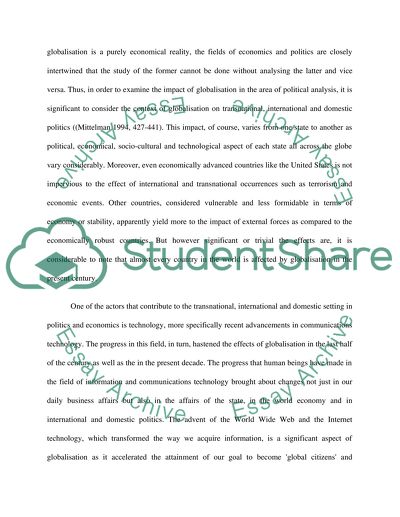Cite this document
(“Does the advent of globalization require a new set of approaches Essay”, n.d.)
Retrieved from https://studentshare.org/politics/1520741-global-politics
Retrieved from https://studentshare.org/politics/1520741-global-politics
(Does the Advent of Globalization Require a New Set of Approaches Essay)
https://studentshare.org/politics/1520741-global-politics.
https://studentshare.org/politics/1520741-global-politics.
“Does the Advent of Globalization Require a New Set of Approaches Essay”, n.d. https://studentshare.org/politics/1520741-global-politics.


